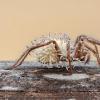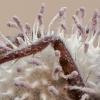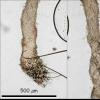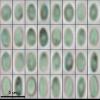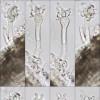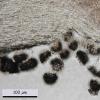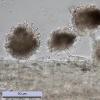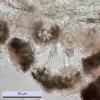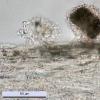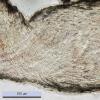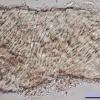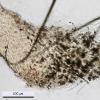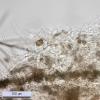
02-02-2026 14:55
 Andgelo Mombert
Andgelo Mombert
Bonjour,Sur thalle de Lobaria pulmonaria.Conidiome

02-02-2026 14:33
 Andgelo Mombert
Andgelo Mombert
Bonjour,Sur le thalle de Peltigera praetextata, ne

31-01-2026 10:22
 Michel Hairaud
Michel Hairaud
Bonjour,┬ĀCette hypocreale parasite en nombre les

02-02-2026 09:29
 Bernard CLESSE
Bernard CLESSE
Bonjour ├Ā toutes et tous,Pour cette r├®colte de 2

01-02-2026 19:29
 Nicolas Suberbielle
Nicolas Suberbielle
Bonjour,┬ĀMarie-Rose D'Angelo (Soci├®t├® Mycologiq

31-01-2026 09:17
 Marc Detollenaere
Marc Detollenaere
Dear Forum,On decorticated wood of Castanea,I foun

29-08-2025 05:16
 Francois Guay
Francois Guay
I think I may have found the teleomorph of Dendros

30-01-2026 21:20
Arnold B├╝schlenBryocentria brongniartii und B. metzgeriae mit ihr

21-01-2026 16:32
Gernot FriebesHi,I need your help with some black dots on a lich
Gibellula arachnophila f pleiopus?
Miguel Ángel Ribes,
13-02-2014 00:42
 Hi again
Hi againI think this is more interesting.
On a spider, 2,5-3 mm tall, light pink synemmata.
Conidiospores:
(3.48) 3.87 - 4.52 (4.98) x (1.65) 1.89 - 2.20 (2.41) ┬Ąm
Q = (1.61) 1.86 - 2.30 (2.58) ; N = 46
Me = 4.18 x 2.03 ┬Ąm ; Qe = 2.07
Thanks in advance┬Ā
Miguel Á. Ribes
Nicolas VAN VOOREN,
13-02-2014 07:35

Re : Gibellula arachnophila f pleiopus?
Hi Miguel.
I think your collection matches Gibellula pulchra. The conidiophores of G. leiopus are very short and the conidia are a little bit more longer (4-5 ┬Ąm).
I'm going to send to you a paper of A. Kub├Ītov├Ī about G. leiopus.
I think your collection matches Gibellula pulchra. The conidiophores of G. leiopus are very short and the conidia are a little bit more longer (4-5 ┬Ąm).
I'm going to send to you a paper of A. Kub├Ītov├Ī about G. leiopus.
Miguel Ángel Ribes,
13-02-2014 09:17

Re : Gibellula arachnophila f pleiopus?
Hi Nicolas
It looks like G. pulchra, more than G. leiopus, but I am not capable to distinguish both species . I have found more papers and pictures about G. pulchra in the internet, wich requires a more careful reading.
But, what is the picture n┬║ 5, which was present mainly in the stem, while conidiophores (pictures 6-9) where present mainly in the cap?
Thanks about the paper.
Miguel Á. Ribes
It looks like G. pulchra, more than G. leiopus, but I am not capable to distinguish both species . I have found more papers and pictures about G. pulchra in the internet, wich requires a more careful reading.
But, what is the picture n┬║ 5, which was present mainly in the stem, while conidiophores (pictures 6-9) where present mainly in the cap?
Thanks about the paper.
Miguel Á. Ribes
Nicolas VAN VOOREN,
13-02-2014 15:08

Re : Gibellula arachnophila f pleiopus?
Conidiophores can be present on the stem, this is what is shown on the 5th picture.
Miguel Ángel Ribes,
13-02-2014 22:12

Re : Gibellula arachnophila f pleiopus?
Ooops, I thought conidiophores were pictures 6-9 ( like in G. pulchra), and picture 5 are ┬┐? another type of conidiophores, more similar to G. pleiopus ones.

